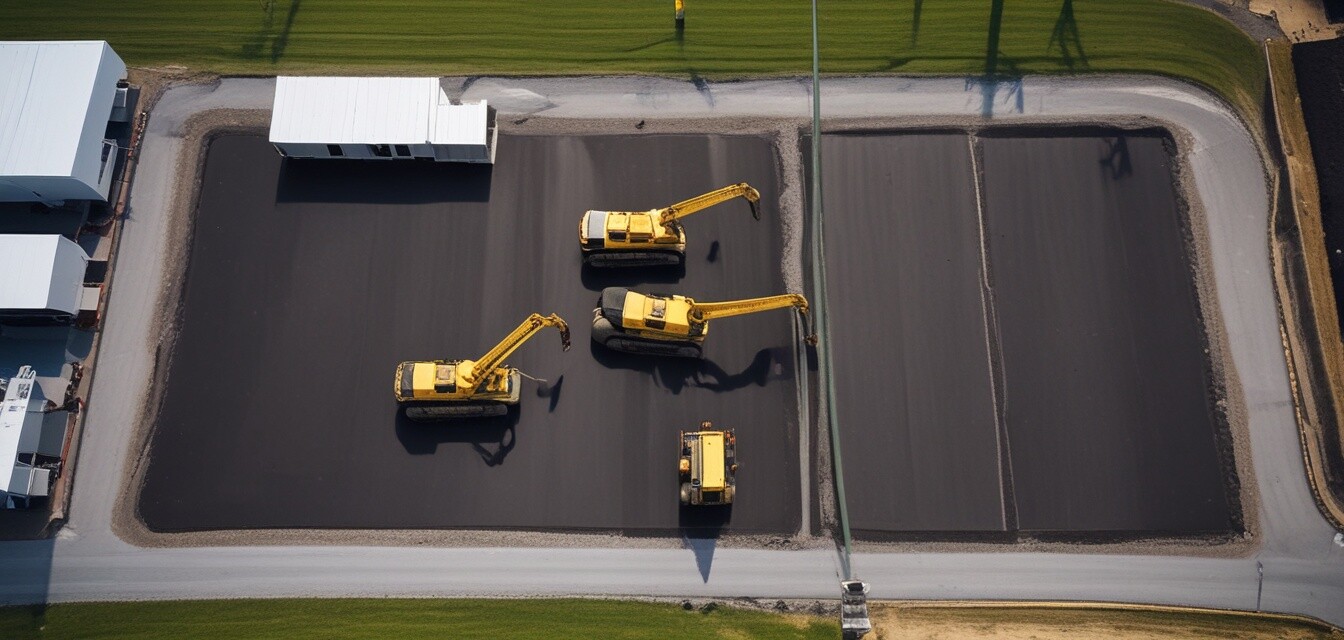
Understanding the shift to recycled asphalt
Key Takeaways
- The trend towards using recycled asphalt is on the rise due to environmental benefits and cost-effectiveness.
- Recycled asphalt can mimic the performance of traditional asphalt while reducing waste.
- Incorporating recycled materials in paving projects can lead to significant long-term savings.
- The use of recycled asphalt contributes positively to sustainability efforts within the construction industry.
- To stay informed on the latest advancements, check out our news and trends section.
As the construction industry marches towards sustainability, the shift towards using recycled asphalt is gaining traction across the globe. This article explores the reasons behind this trend, its benefits, and the impact it has on the future of asphalt paving projects. Let's dive into understanding why recycled asphalt is becoming a popular choice among contractors and DIY enthusiasts alike.
The importance of recycled asphalt
Recycling asphalt not only addresses the issues of waste and excessive quarrying but also provides significant economic and environmental benefits. Below is a look at the main reasons why the industry is embracing this shift:
- Reduces landfill waste
- Conserves natural resources
- Presents cost savings in asphalt production
- Maintains quality in paving performance
Environmental benefits
One of the most compelling reasons for the shift towards recycled asphalt is its positive environmental impact. Here are key environmental benefits:
| Benefit | Description |
|---|---|
| Waste Reduction | Using recycled asphalt reduces the amount of material sent to landfills and promotes responsible waste management. |
| Lower Energy Consumption | Recycling asphalt requires less energy compared to producing new asphalt from raw materials. |
| Conservation of Resources | Recycling lessens the demand for virgin materials such as mined aggregate and bitumen. |
Cost-effectiveness
Adopting recycled asphalt can lead to substantial cost savings for paving contractors and property owners. Here’s how:
Pros
- Lower material costs when using recycled asphalt.
- Reduced travel expenses for transporting raw materials to the job site.
- Longer-lasting pavements can decrease maintenance costs over time.
Cons
- The initial investment in recycling equipment may be high for some contractors.
- Potential variability in quality can occur based on the recycling process and material source.
Technical considerations
When moving forward with recycled asphalt, several technical factors must be taken into account:
- Gradation: Proper gradation of the recycled material is essential for achieving the desired stability and performance.
- Mix Design: A good mix design ensures that the performance standards of the asphalt are met.
- Quality Control: Implementing a quality control program during production can help maintain the consistency of the recycled asphalt.
Emerging trends in recycled asphalt technology
The asphalt paving industry is continuously evolving, and several innovative technologies are being developed to enhance the use of recycled asphalt:
| Technology | Description |
|---|---|
| Warm Mix Asphalt | This technology allows for the production of asphalt at lower temperatures, resulting in reduced emissions and energy consumption. |
| Foamed Asphalt | A technique that helps incorporate higher ratios of recycled asphalt into new mixes effectively. |
| Recycling Agents | Chemical additives that improve the bonding between recycled asphalt and new materials, ensuring better performance. |
Conclusion
Understanding the shift to recycled asphalt opens up new possibilities for paving projects while aligning with sustainable construction practices. With the combination of cost savings, environmental benefits, and technological advancements, recycled asphalt is a practical choice for both contractors and DIY enthusiasts. By keeping informed about the latest trends in the industry, paving professionals can enhance their strategies and adapt to the evolving landscape of asphalt paving.
Tips for using recycled asphalt
- Research local suppliers who offer quality recycled asphalt materials.
- Always consult with a paving expert to determine the right mix design for your project.
- Stay updated on regulations and guidelines regarding the use of recycled asphalt in your area.
For more insights into asphalt paving equipment, be sure to check out our sections on asphalt pavers and rollers, sealants and crack fillers, and buying guides as you plan your next project.

